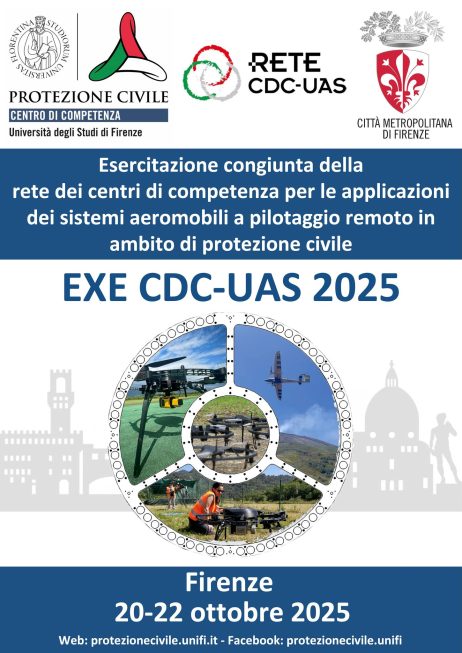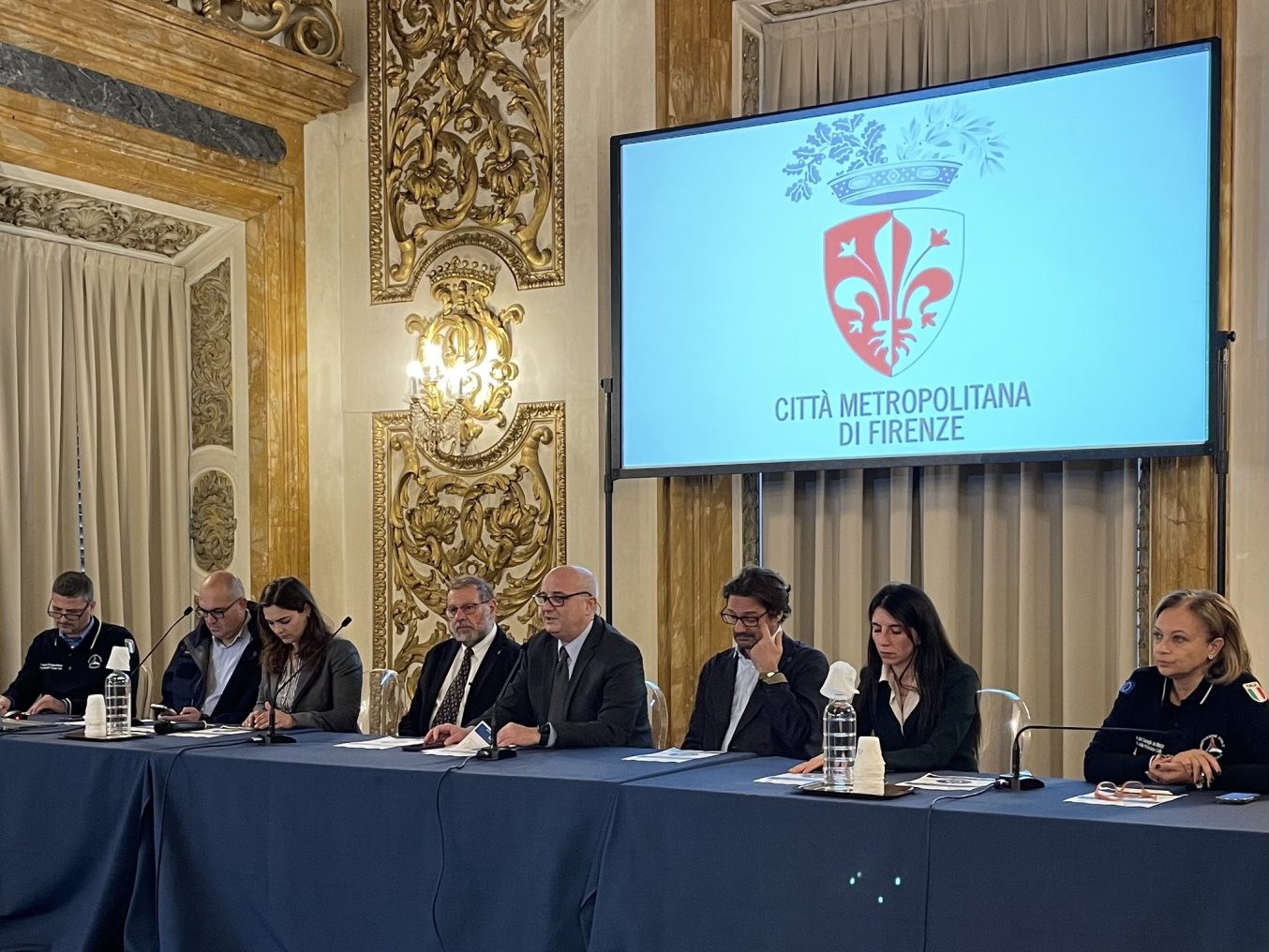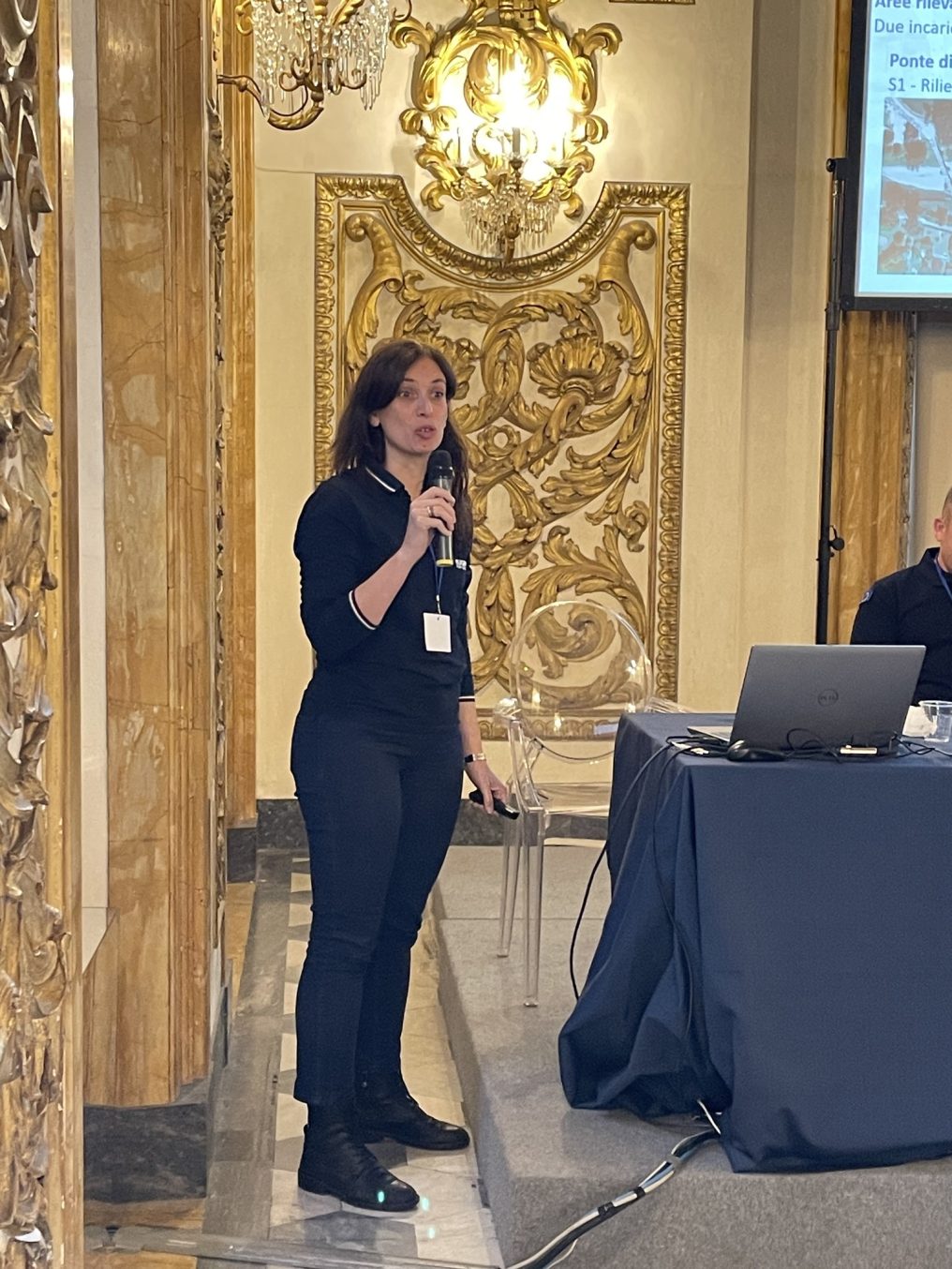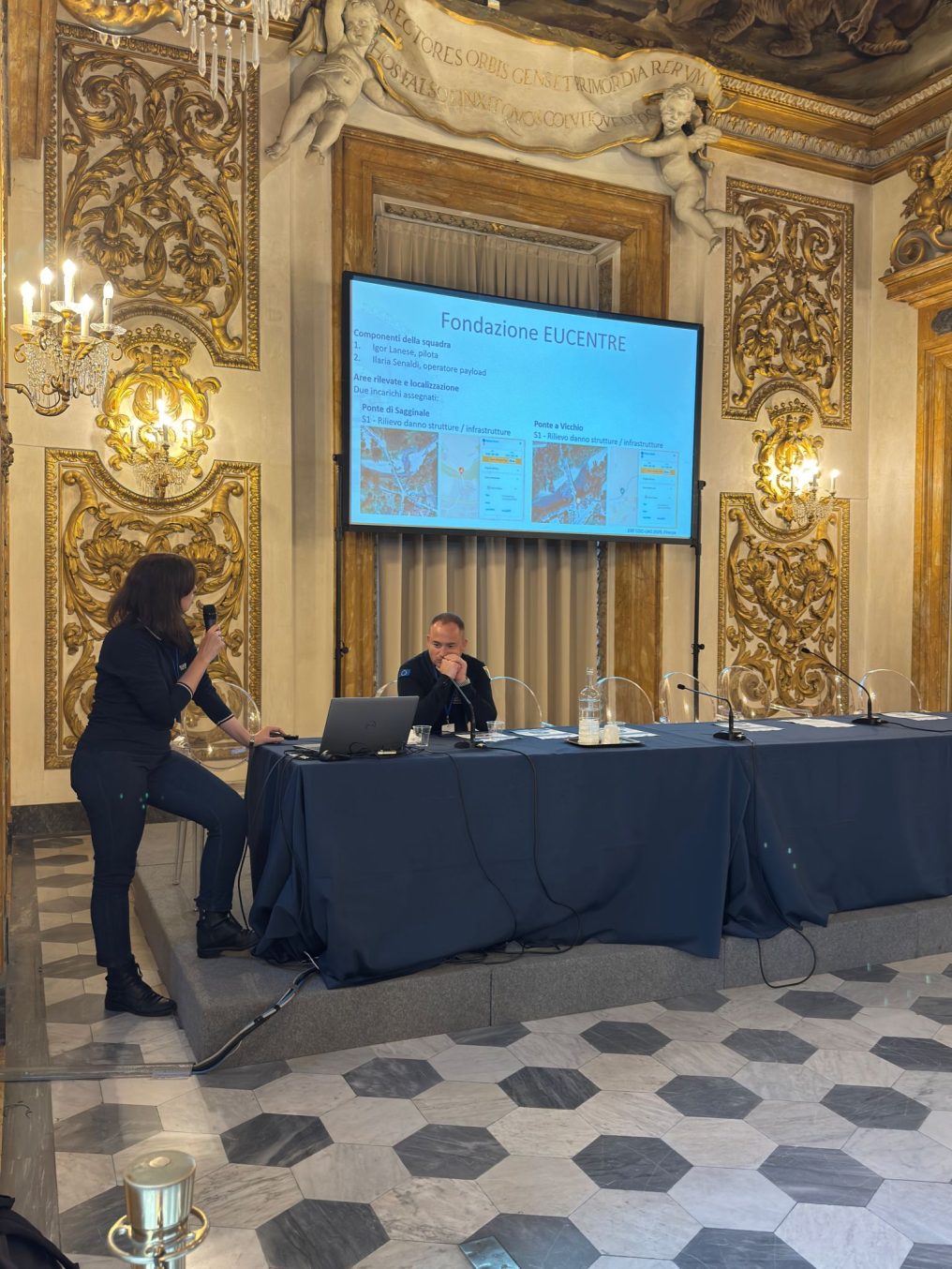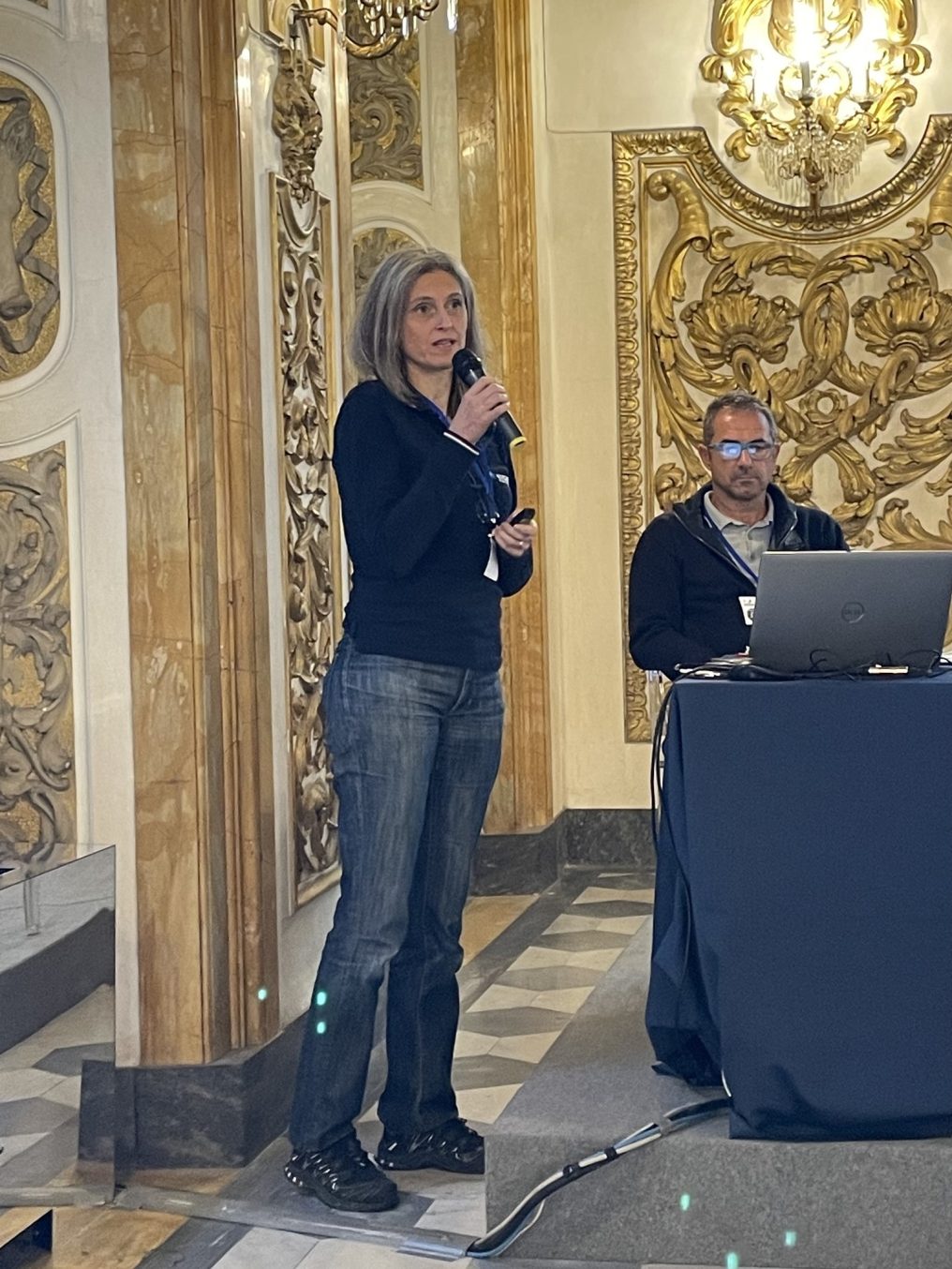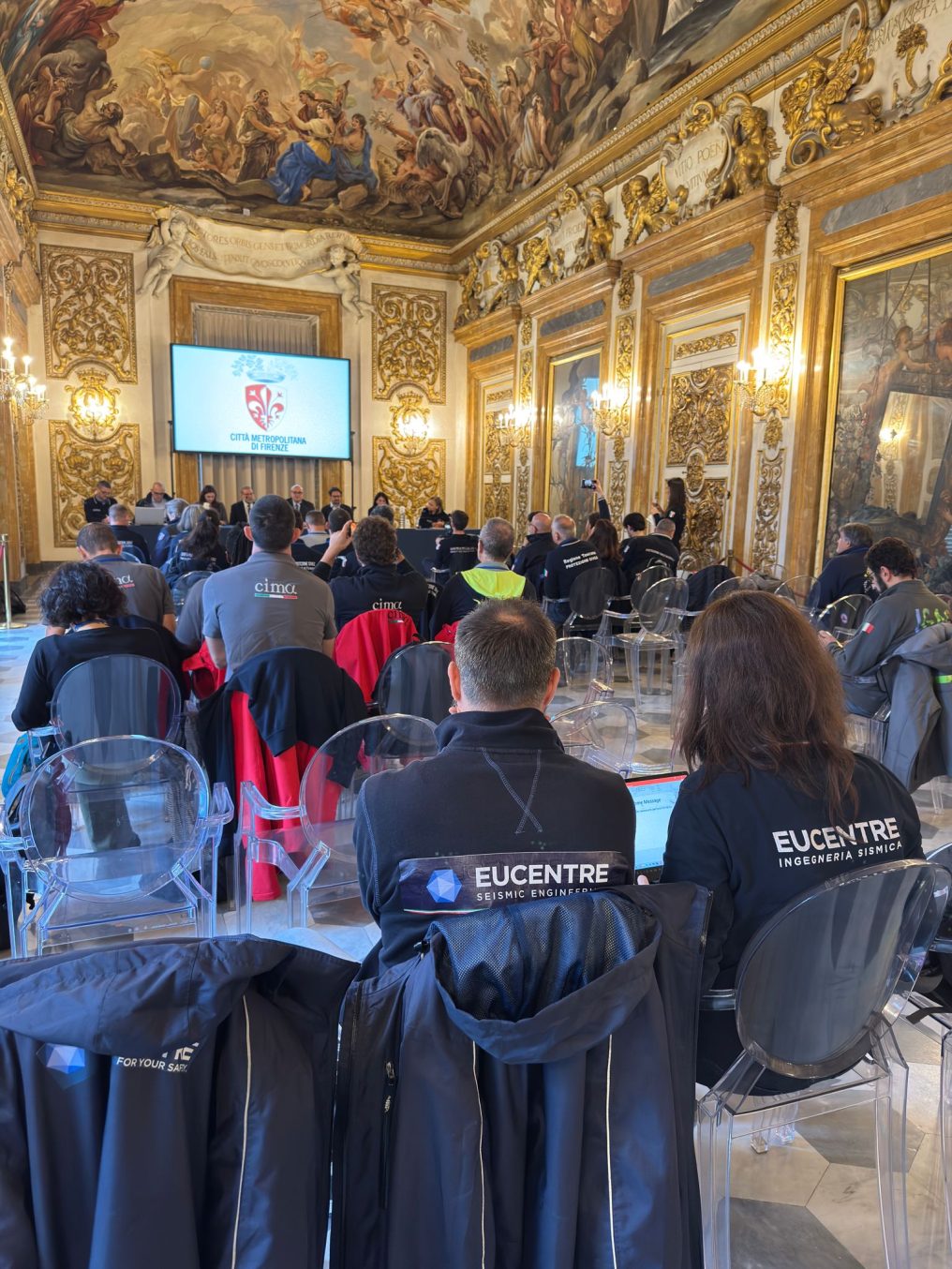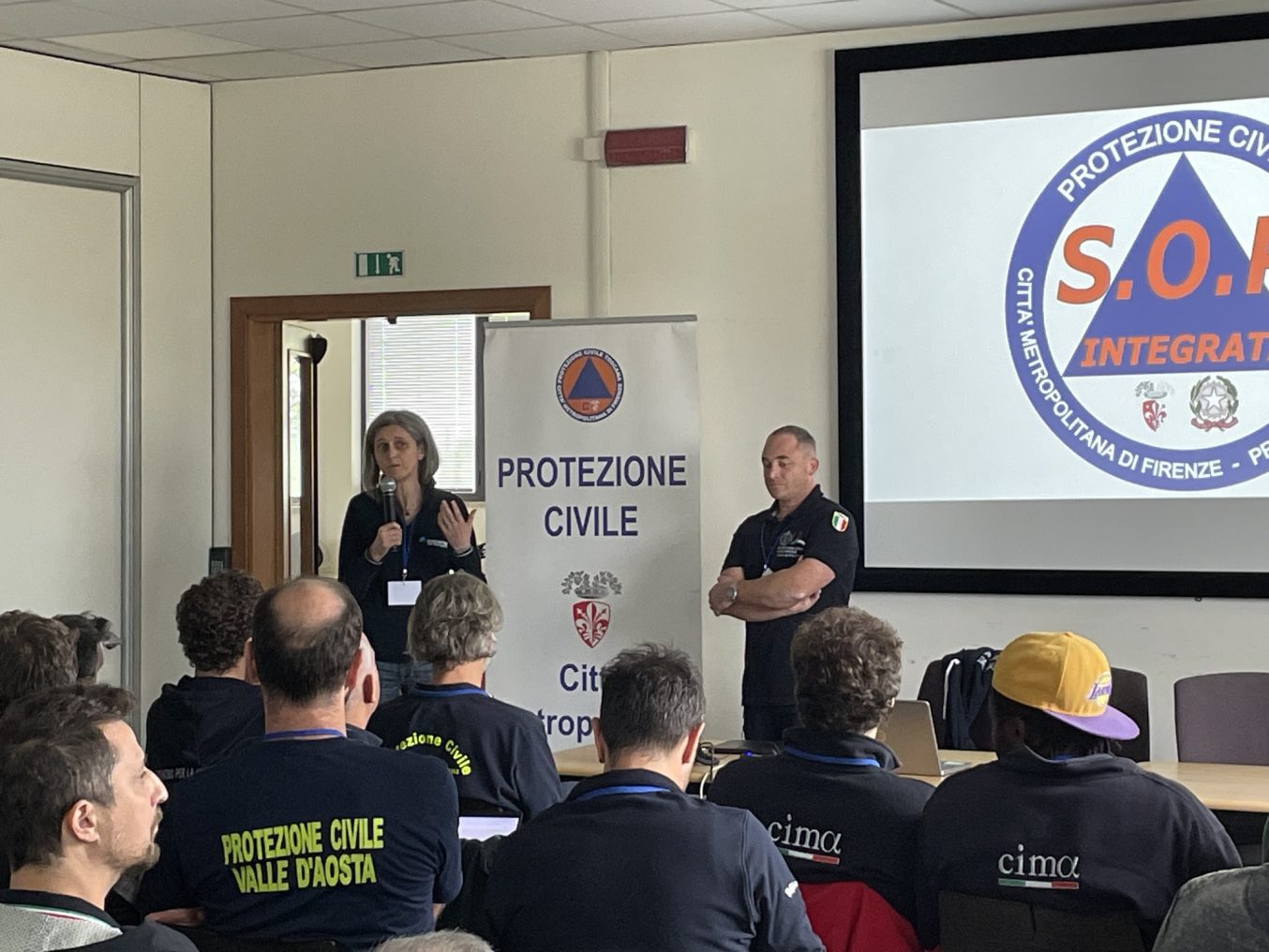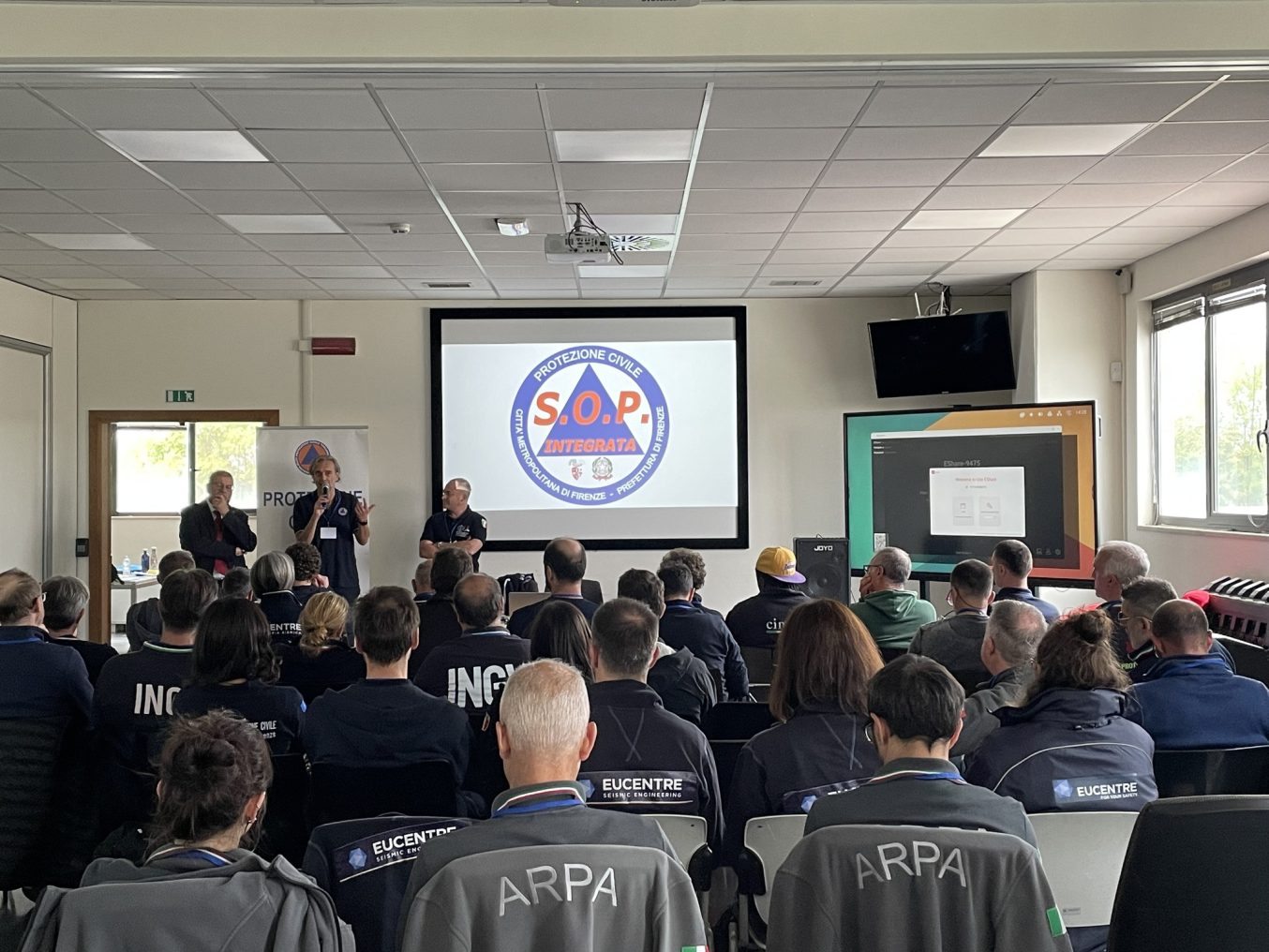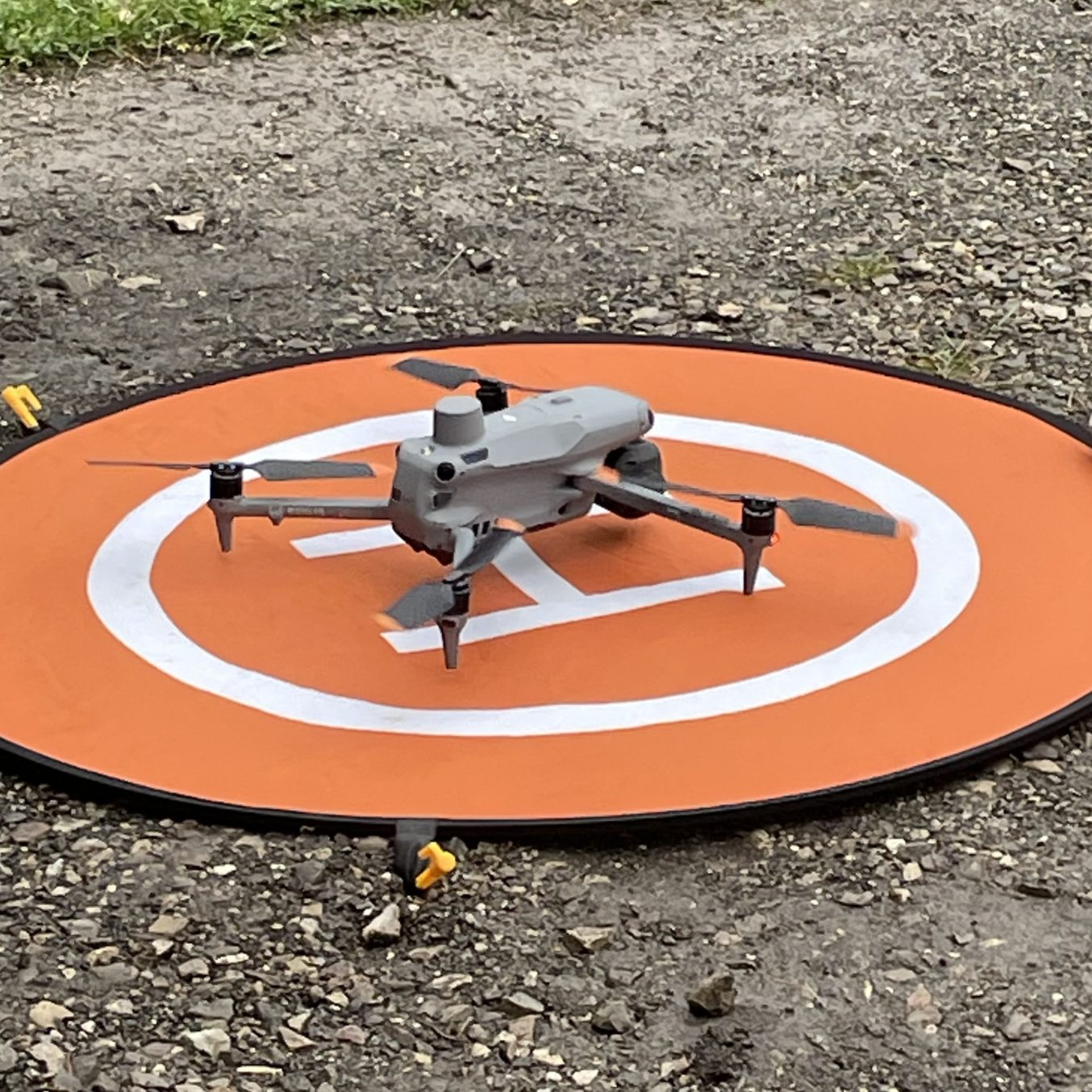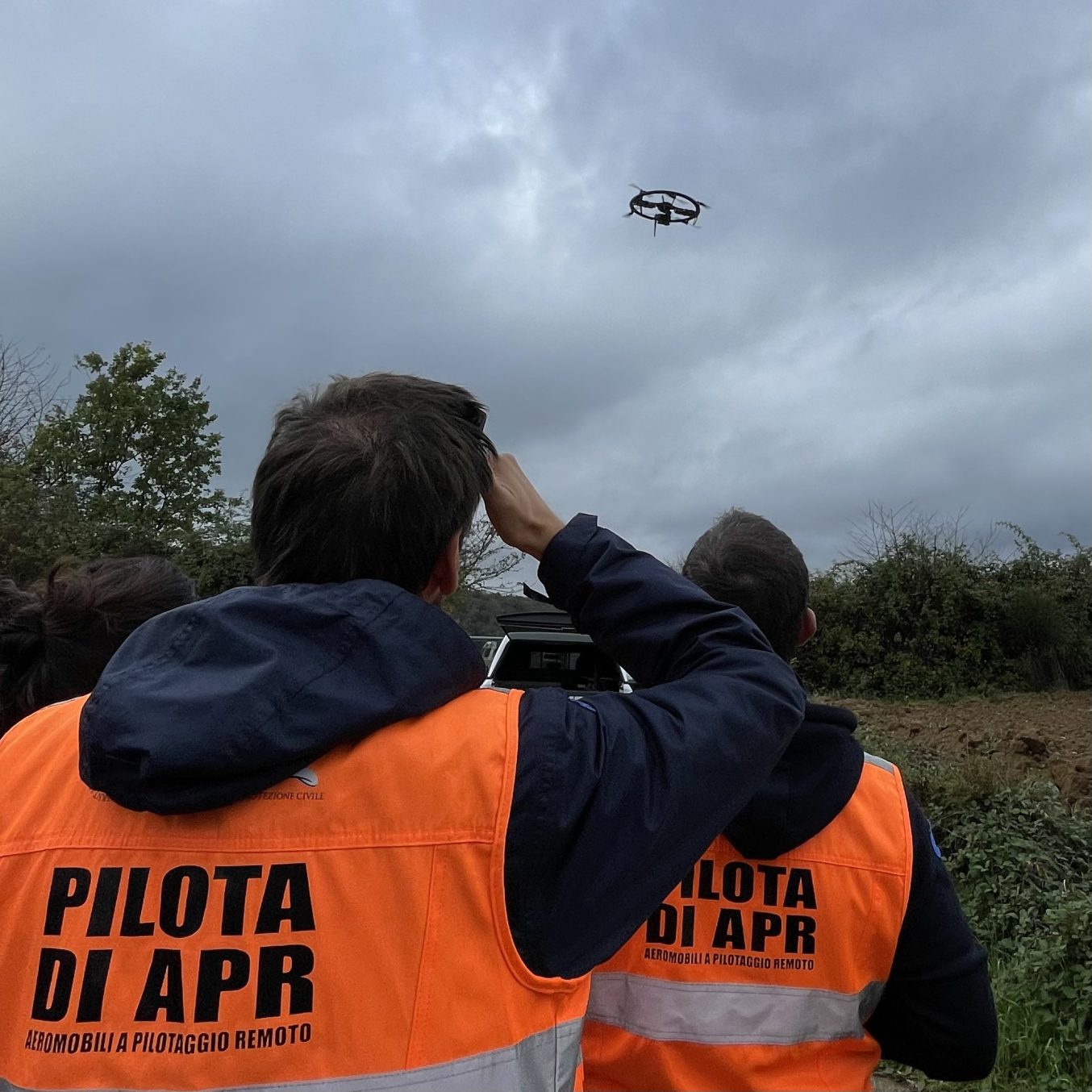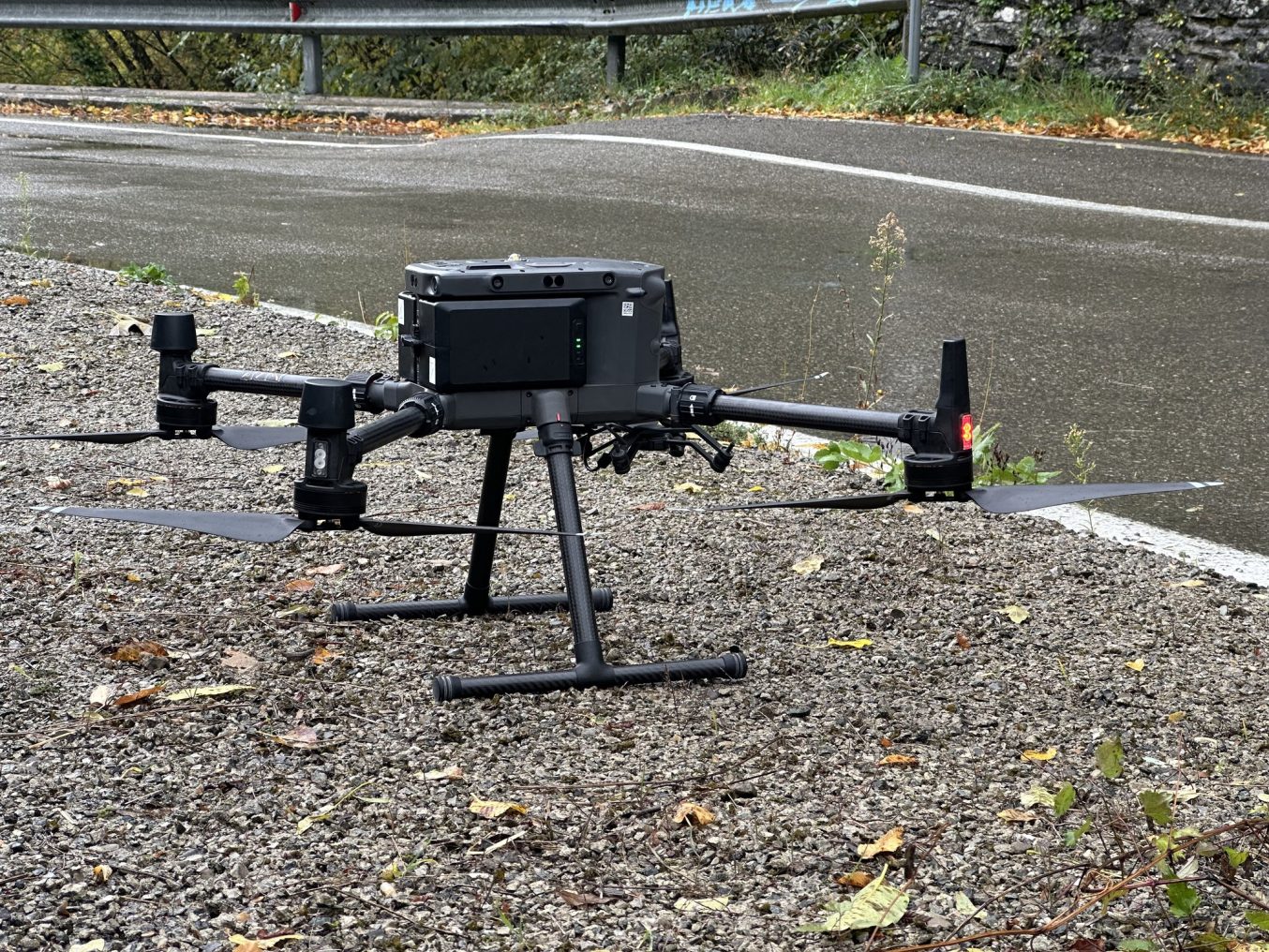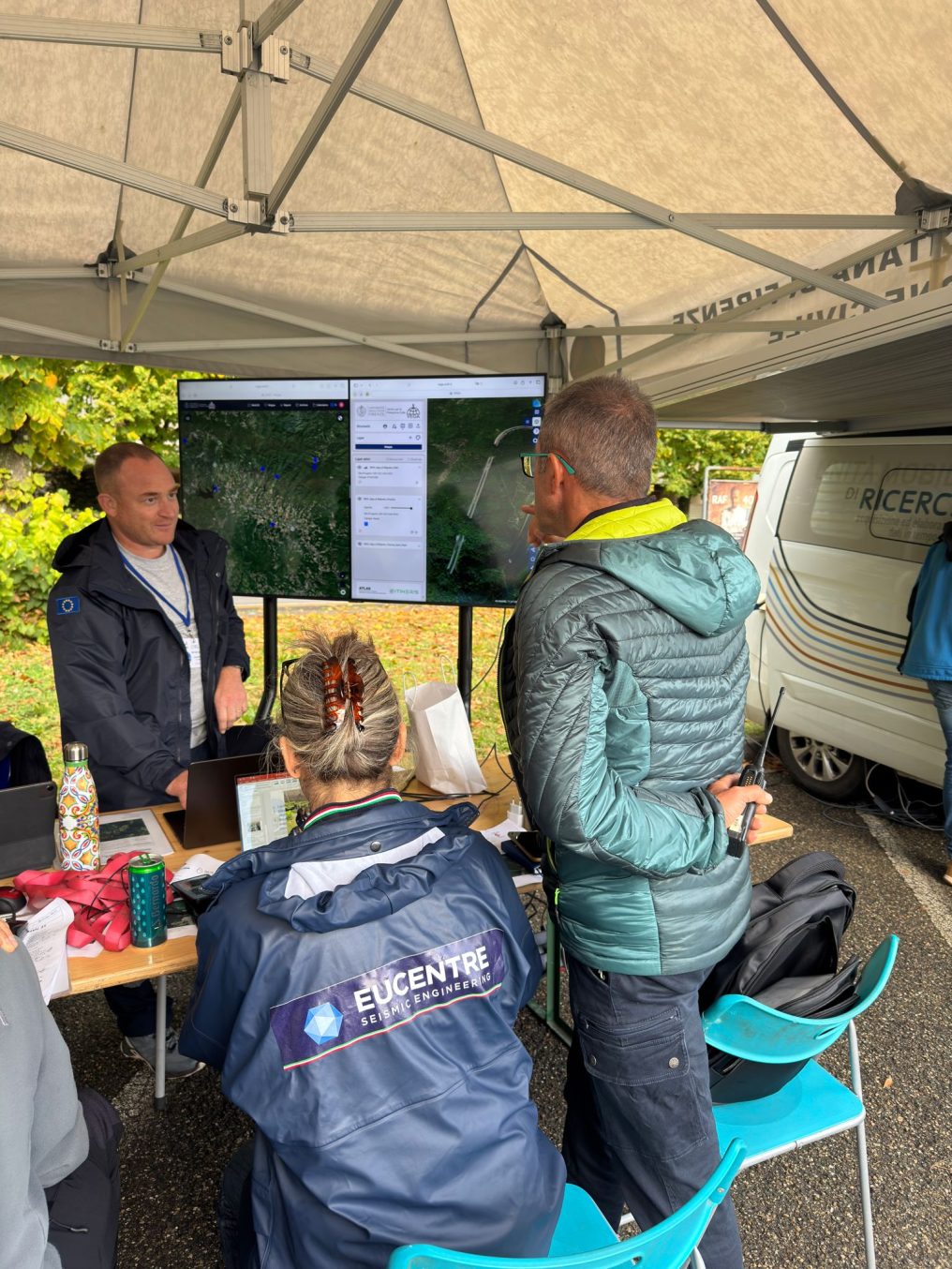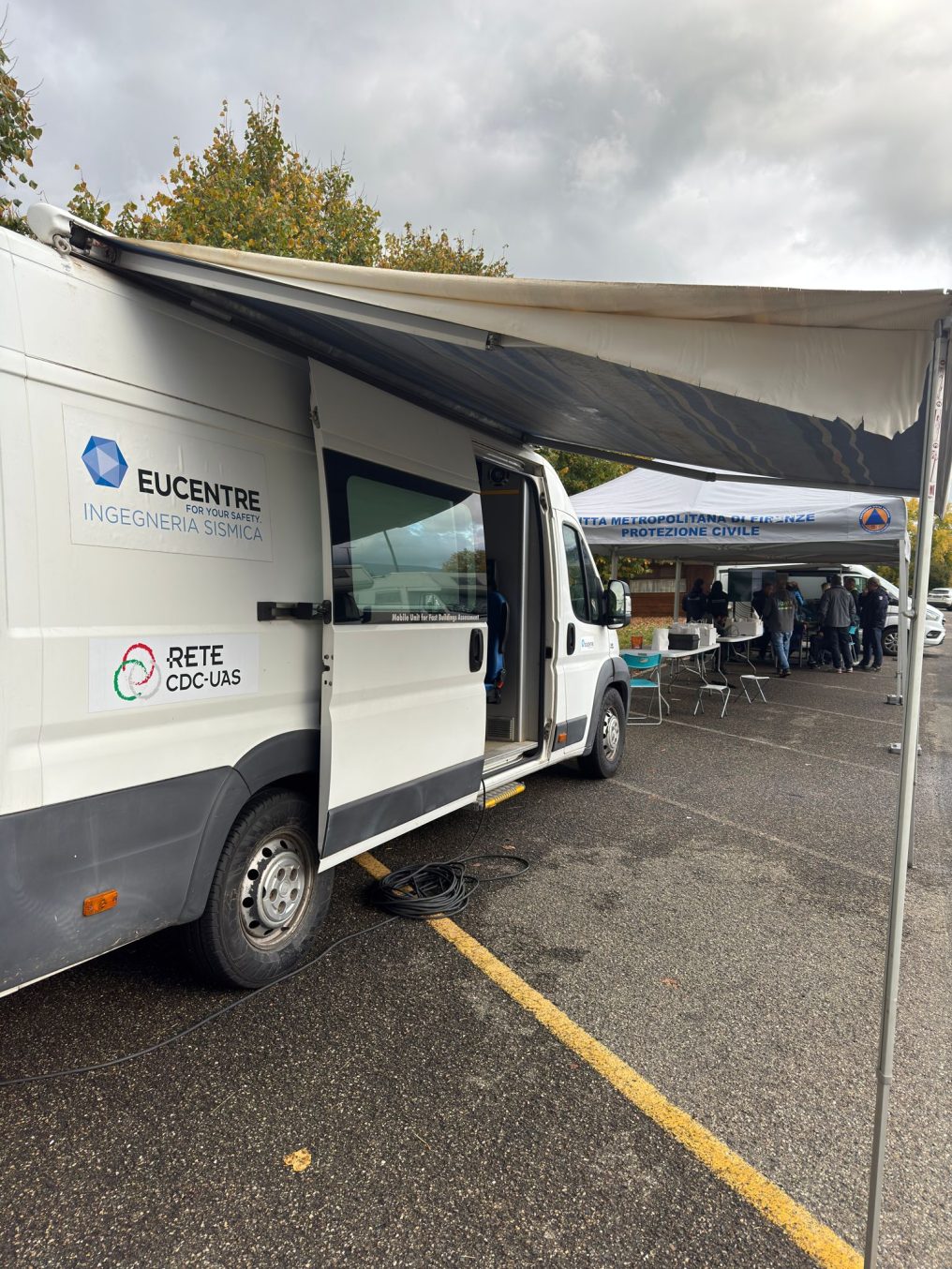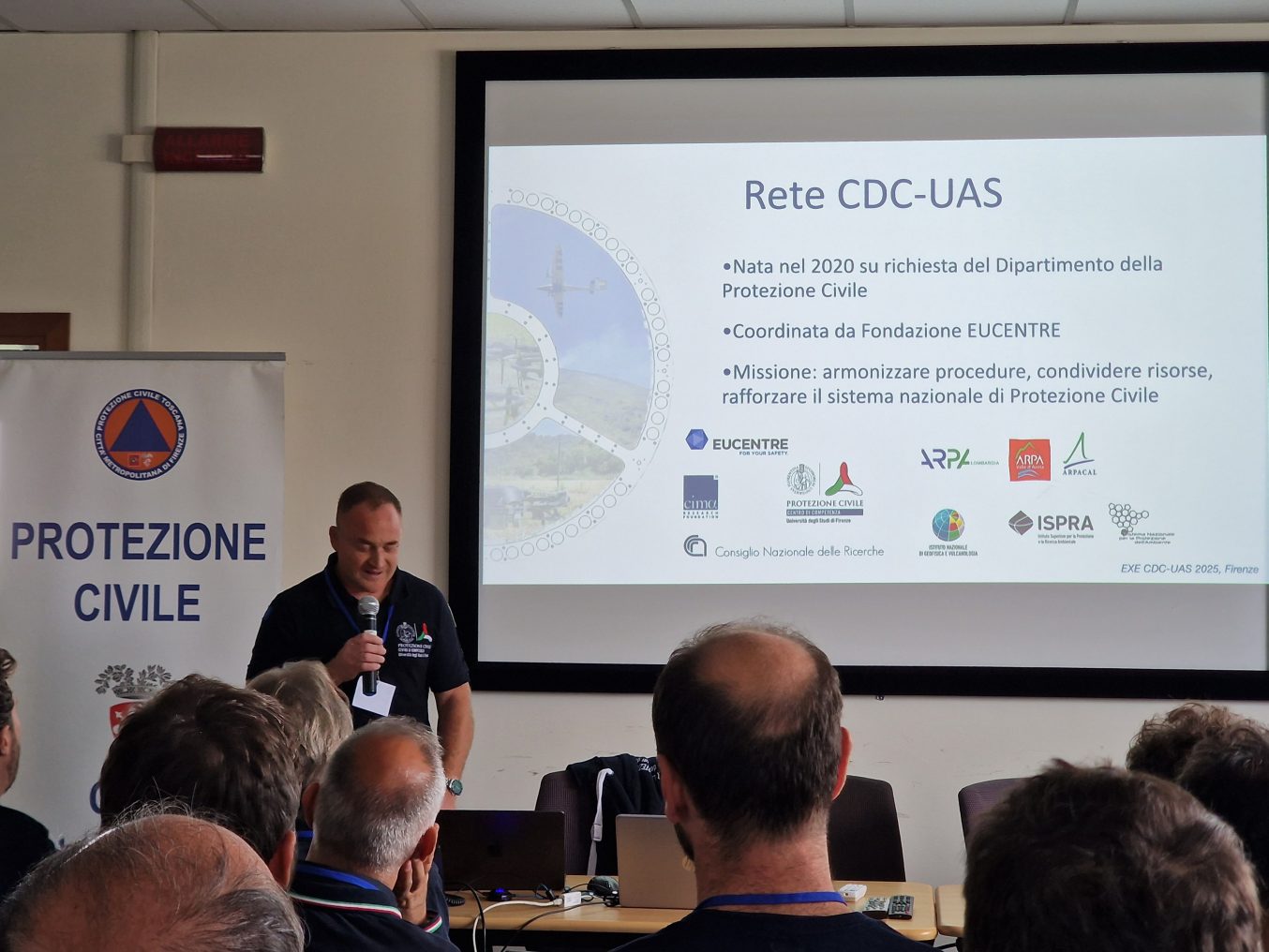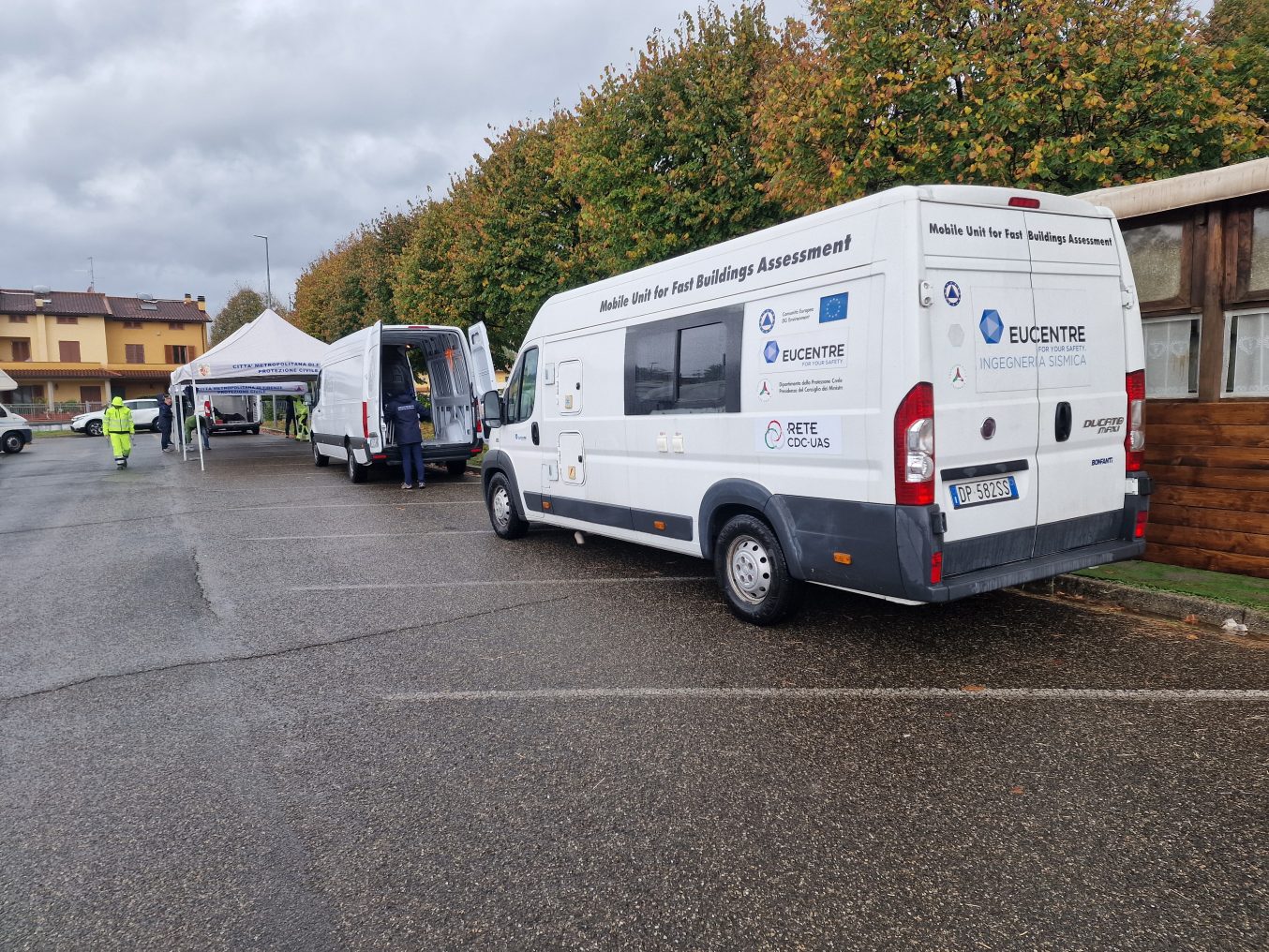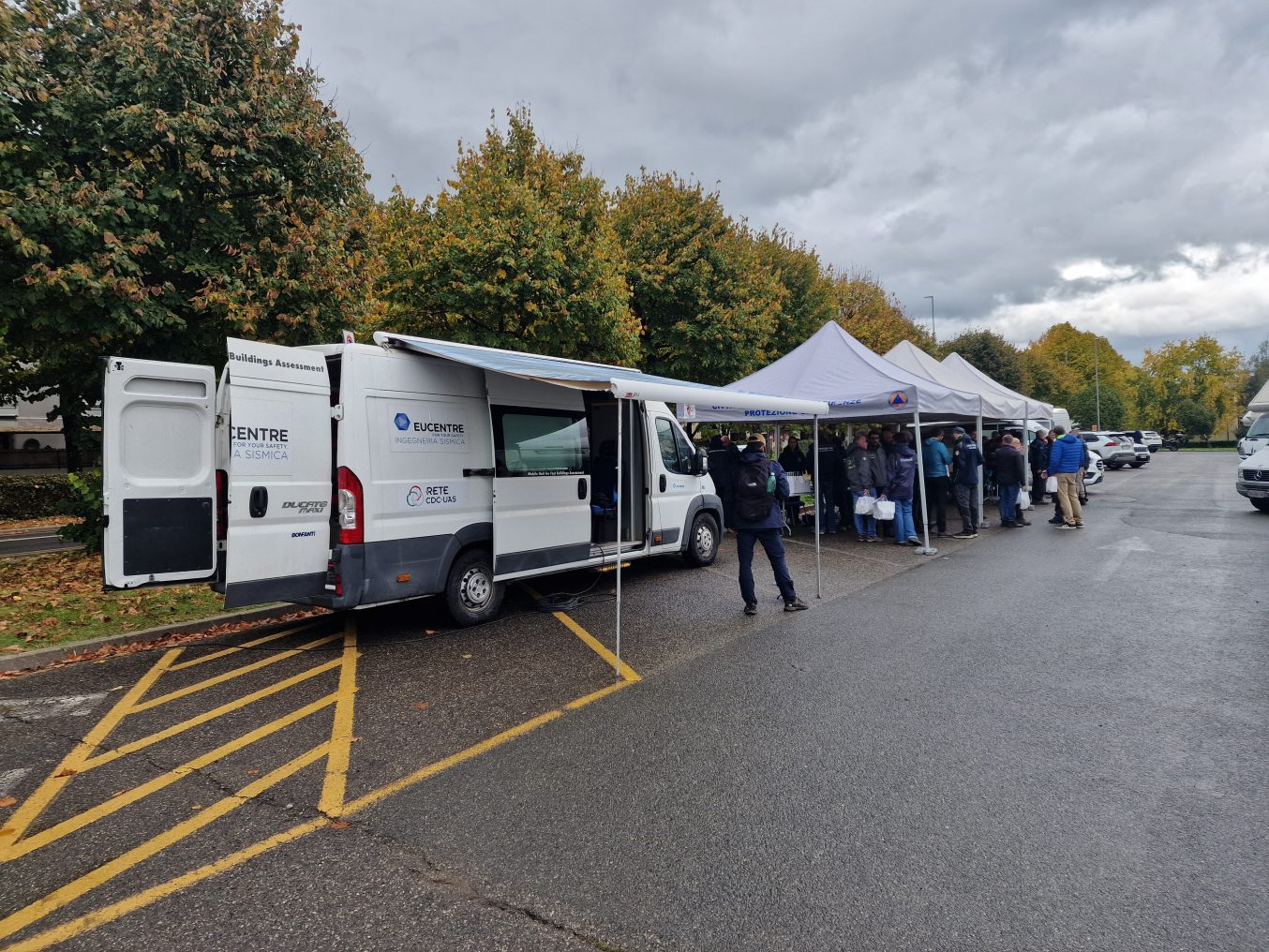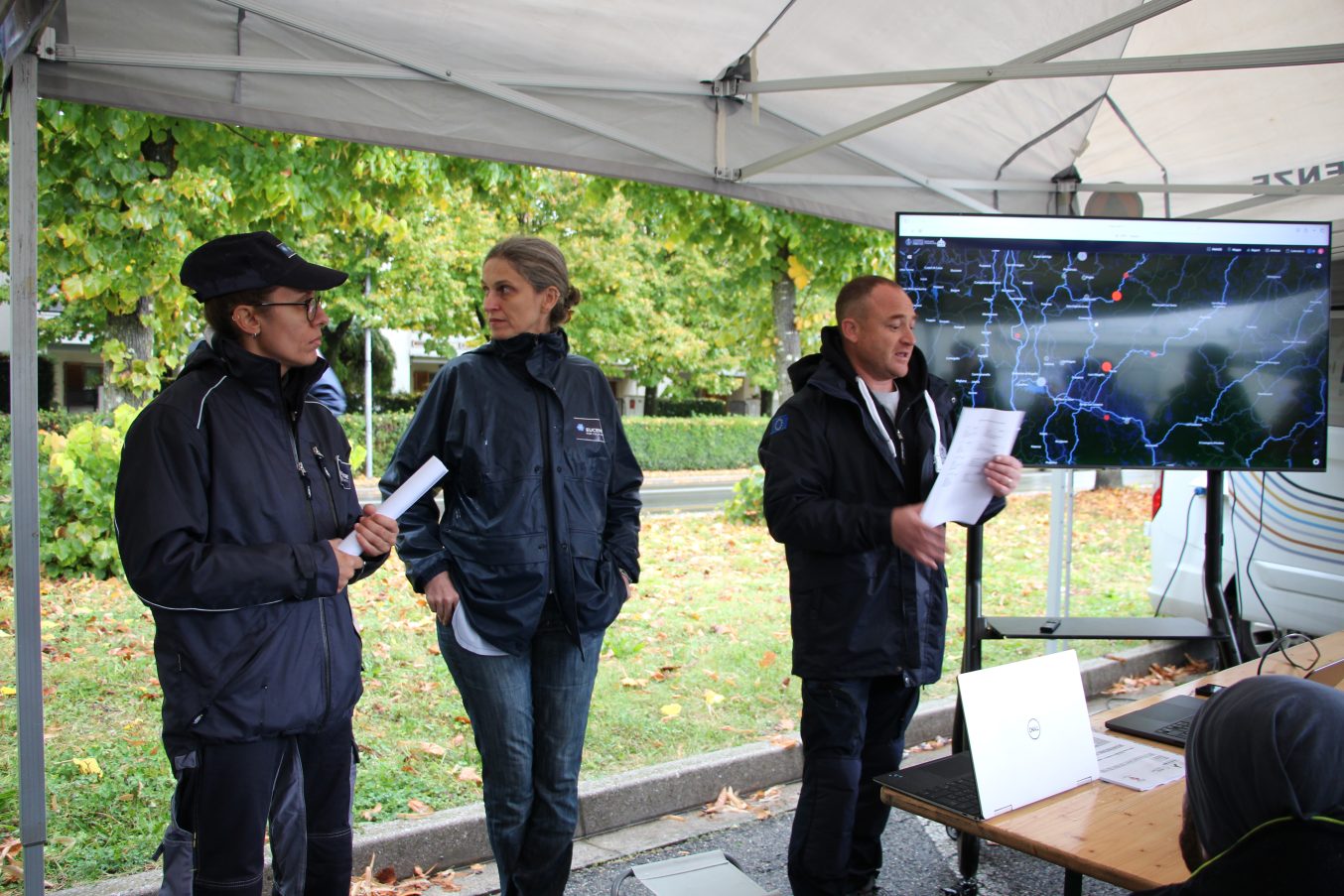From October 20th to 22nd, 2025, the third joint exercise of the Civil Protection Department’s National Network of Centres of Competence was held in the territory of the Metropolitan City of Florence, dedicated to the use of remotely piloted aircraft systems (UAS) in complex emergency scenarios.
Called EXE CDC-UAS 2025, the initiative was organised by the Civil Protection Centre of the University of Florence and the Metropolitan City of Florence. About forty technicians from almost all the entities in the network took part in the activity: Eucentre Foundation (network coordinator), UNIFI Civil Protection Centre, CIMA Foundation, CNR, INGV, and the ARPAs of Lombardy and Valle d’Aosta.
A realistic scenario in Mugello to test procedures and coordination
The exercise focused on a hydrogeological emergency scenario in the extended area of the Union of Mugello Municipalities, designed to reproduce non-predicted conditions as realistically as possible, also thanks to the actual weather alert layered on top of the simulated one. The scenario re-enacted events similar to the Marradi landslide of 2023, which occurred during the flood that hit Emilia-Romagna and upper Tuscany.
The teams conducted aerial and ground surveys with drones, produced maps and digital models in near real time, and verified the integrated management of operations. The main objective was to test the effectiveness of coordination between centres of competence and local operational structures, consolidating standard protocols and optimising the flow of information in crisis contexts.
Technology, realism and operational training
The exercise offered a concrete test bed for the National Civil Protection System, allowing it to simulate highly complex operational conditions and to test the technological and organisational resilience of the CDC-UAS network. During the final day, October 22nd at Palazzo Medici Riccardi, the results were presented and prospects for the use of drones in emergency management were discussed.
Delegate Councillor Massimo Fratini emphasised that the simulation, carried out during a real weather alert, represented a non-academic, but highly educational exercise:
“We are proud to have hosted an exercise that brings together the best energies of the national civil protection system. The simulated scenario, realistic and challenging, will be a wealth of experience for dealing with future emergencies.”
Towards a more integrated and innovative Civil Protection system
With EXE CDC-UAS 2025, the network of Competence Centres consolidates its strategic role in promoting research, innovation and operational cooperation to support community safety. The integration of advanced technologies, such as drones, and rapid data processing makes it possible to improve forecasting, management and response in multi-hazard scenarios, making Civil Protection intervention more effective and timelier at the national level.
 Eucentre is a non-profit private law foundation whose mission is to conduct research and provide training and services in earthquake and safety engineering
Eucentre is a non-profit private law foundation whose mission is to conduct research and provide training and services in earthquake and safety engineering  Eucentre promotes science, research and innovation for the benefit of the community, offering targeted methodologies and concrete solutions for prevention, safety and resilience. It collaborates with institutions and companies to disseminate competencies for the common good.
Eucentre promotes science, research and innovation for the benefit of the community, offering targeted methodologies and concrete solutions for prevention, safety and resilience. It collaborates with institutions and companies to disseminate competencies for the common good. Eucentre conducts earthquake engineering research and risk reduction studies via laboratory testing and numerical analysis to enhance seismic performance and develop innovative solutions
Eucentre conducts earthquake engineering research and risk reduction studies via laboratory testing and numerical analysis to enhance seismic performance and develop innovative solutions  Eucentre carries out research activities in earthquake engineering and risk reduction through laboratory testing and numerical analysis, aiming to improve the seismic performance of structures and soils and to develop innovative seismic retrofitting techniques.
Eucentre carries out research activities in earthquake engineering and risk reduction through laboratory testing and numerical analysis, aiming to improve the seismic performance of structures and soils and to develop innovative seismic retrofitting techniques. The Foundation promotes diverse and high-quality training activities aimed at academic and professional contexts, with constantly updated and innovative programs and initiatives designed to meet the evolving needs of the sector and society
The Foundation promotes diverse and high-quality training activities aimed at academic and professional contexts, with constantly updated and innovative programs and initiatives designed to meet the evolving needs of the sector and society  Eucentre ensures communication aimed at informing institutions, professionals, and citizens about ongoing activities and projects, with the goal of disseminating useful and accessible content and knowledge. It contributes to promoting a shared and informed culture of prevention and resilience.
Eucentre ensures communication aimed at informing institutions, professionals, and citizens about ongoing activities and projects, with the goal of disseminating useful and accessible content and knowledge. It contributes to promoting a shared and informed culture of prevention and resilience.
